15 - 20 weeks
What is the Maternal Serum Prenatal Screen (MSPS)?
Why is it called a screening test?
What does the MSPS involve?
What are Down syndrome (Trisomy 21), Trisomy 18 and Neural tube defects (NTD)?
Down syndrome (DS) is the most common chromosome condition. The medical term for Down syndrome is trisomy 21 (an extra 21st chromosome.) Those with DS have some degree of intellectual delay and may have other health concerns like a heart problem. The physical and intellectual effects of this extra genetic material vary greatly from person to person. There is a slightly greater chance for having a baby with Down syndrome as a woman ages.A baby with Down syndrome or other chromosome conditions can be born to any couple.
Trisomy 18 is caused by having an extra chromosome 18 in every cell of the body. Babies with trisomy 18 have severe physical and intellectual handicaps and often die before birth or when they are infants.
The neural tube is a part of the developing baby that forms very early in development. The upper part of the neural tube forms the baby’s brain and the lower part forms the spine. If the neural tube does not form properly, the baby will have an NTD. Examples of NTDs are spina bifida and anencephaly. Spina bifida may be fairly mild, or can be more serious, affecting the nerves of the bladder, bowel, and legs. If there is a family history of neural tube defects, the risk may be slightly higher.
What type of results should I expect from the MSPS?
There are two possible screen results for each condition, either a “screen positive” or a “screen negative”.
- A “screen negative” result means that the chance of having a baby with one of these three conditions is low (below the cut-off). Follow-up tests, aside from the option of 18-week ultrasound are not needed unless there are other reasons.
- A “screen positive” result means that the chance of having a baby with one of these conditions is above the cut-off. More testing will be offered. A screen positive result does not mean that the baby has a health concern.
What follow-up testing might be suggested?
Genetic counselling may be offered to answer your questions about the MSPS result. Genetic counsellors also explain the benefits and limitations of other testing so that you can make an informed decision about further testing options.
Amniocentesis may be offered. This is a procedure done to test and diagnose chromosome problems like Down syndrome and trisomy 18. Amniocentesis tests the cells in the amniotic fluid (the water around the baby inside the mother). The fluid can also be used to test for NTDs in the baby. This test cannot tell how mild or severe the condition will be. There are risks associated with having an amniocentesis that are explained to you in counselling to assist you in making a decision about testing.
How accurate is MSPS?
MSPS does not detect all babies with these conditions. The detection rate is about 70 percent for Down syndrome and trisomy 18 and 80 percent for spina bifida. This means that 70 percent of women carrying a baby with Down syndrome or trisomy 18 will be identified with a screen positive result and 80 percent of women carrying a baby with spina bifida will be identified with a screen positive result.
Important things to remember about MSPS It is your choice whether you want to have this test or any follow-up tests that may be offered during your pregnancy. A healthy baby and normal pregnancy are still most likely, even after a positive MSPS result. This test detects most pregnancies at an increased risk for Down syndrome, trisomy 18, and NTDs. Genetic counsellors are available to answer your questions.
Please ask your care provider as to how you should expect to receive your results.
